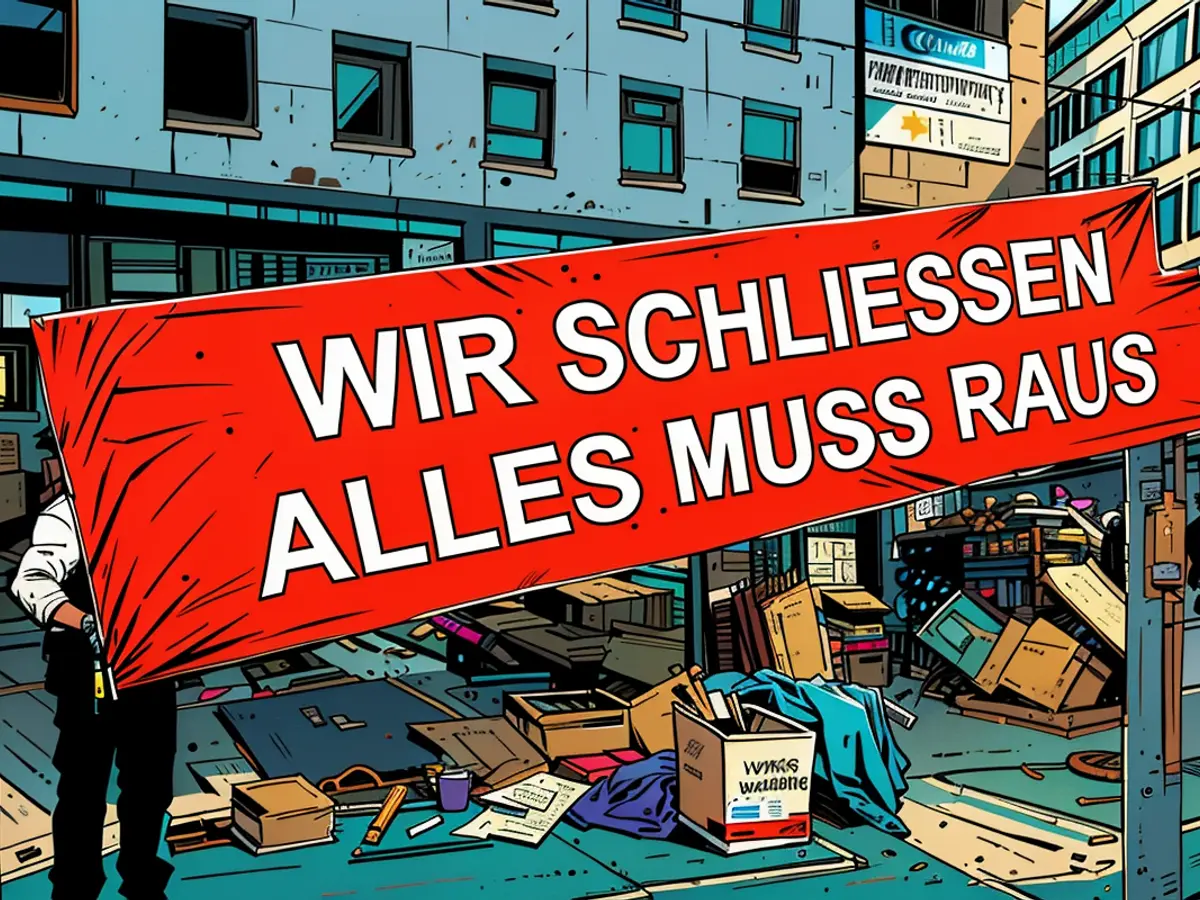"Economic benefits emerging from increased bankruptcy cases"
ntv.de interview: Soaring insolvencies signal economic strain, not impending disaster, according to the head of the German Association of Insolvency Administrators and Trustees, Christoph Niering.
ntv.de: Is the increasing number of insolvencies a return to normal or the start of a bankruptcy frenzy?
Christoph Niering: I'd rather avoid that "wave" imagery. It implies something uncontrollable barreling down on us. We're not there yet. We're still a long way from the insolvency numbers we saw during the global financial crisis. Nevertheless, we're observing a clear upward trend.
For years, Germany has been forecasting a bankruptcy wave. It was initially argued that low interest rates were breeding "zombie" companies, those that could only survive due to them. Then came the COVID-19 and energy crises. But they didn't bring the companies down. Rising interest rates have been in effect for some time now, yet the "zombie" phenomenon persists. What gives?
The factors you mentioned are indeed taking effect, albeit with a delay. Companies have been renowned for their resilience, often managing to stay afloat even when their business models were clearly untenable. Real estate companies, for example, have clung to the hope that interest rates would fall again and their calculations would recover. However, the zero interest rate era is unlikely to return, at least not soon. Moreover, customer demands have undergone structural changes. The rise of remote work and demographic shifts have caused a lasting decline in demand for office spaces. The same applies to retail stores. The reality is setting in that these industries are undergoing permanent transformation.
Which sectors are particularly affected?
The healthcare sector is more vulnerable than many realize. Three of the top ten insolvencies last year were hospitals. It's estimated that only half of all hospitals in Germany have sustainable business models, while one-quarter are insolvent or precariously close.
Why is the healthcare sector particularly vulnerable?
Non-profit, religious, and municipal hospital operators have been propping up unprofitable business models with their own resources due to their lack of profit orientation. They lack the funds for maintenance, and many institutions have accumulated significant renovation needs they can't meet. In the case of responsible authorities, the budget is empty. Additionally, banks are less willing to extend credit, especially for hospitals, offices, or retail stores, which used to have profitable uses or conversion prospects.
What can politics do to stem the tide of insolvencies? Is it even advisable?
The German government has bailed out numerous companies to prevent insolvencies in the past years. However, maintaining support when demand for certain goods or services disappears is akin to delaying natural evolutionary processes. For example, a bankrupt building materials company with an energy-intensive production, which neglected investments in modern energy-efficient technology for over a century, could not adapt to the energy crisis. Preventing insolvencies at all costs merely postpones inevitable change processes.
Is the escalating number of insolvencies, then, a positive sign? Inefficient companies, propped up by state aid, subsidies, and low interest rates, are also burdens on the economy.
I wouldn't go so far as to call it "market purging," but there's a grain of truth to the term. In a time of scarcity, companies will compete fiercely for labor, energy, and capital. Insolvencies are necessary in this environment. Companies that lack a viable business model must exit the market to release resources for innovative, future-oriented ideas. Thus, increasing insolvencies can be seen as a positive sign for the economy.
Interview conducted by Max Borowski with Christoph Niering.

Read also:
The skills shortage in certain industries might exacerbate the insolvency situation, as companies struggle to compete due to a lack of skilled labor.
In an attempt to mitigate insolvencies, some governments might consider providing temporary subsidies or state aid to essential industries facing particular challenges, such as the healthcare sector.








